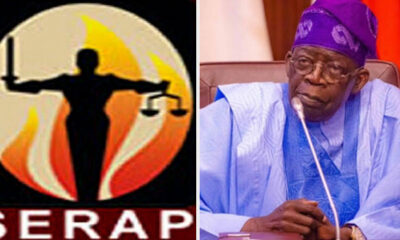The Nigerian government says it will begin tracking social media accounts run by terrorists following a disturbing infiltration of the space by insurgents and bandits.
In recent times, known terrorists and bandit leaders have been using different social media platforms to either propagate their agenda or taunt security operatives, with some daring authorities to engage them in direct combat.
A new Islamist terror group, Lakurawa, was also discovered to be using social media platforms to spread their propaganda and recruit young Nigerians with monetary incentives .
Others like notorious bandit kingpin, Bello Turji go as far as displaying wads of cash they collect as ransom for kidnapped victims or announcing give aways.
In recent videos he has posted on TikTok, Turji has been seen brandishing weapons and calling out the Chief of Defense Staff (CDS), Gen. Chris Musa, challenging the military to come and get him.
Worried by the ugly trend, the Nigerian Defence Headquarters has now resolved to start tracking such social media accounts.
National Coordinator of yhf Counter-Terrorism Centre, Office of the National Security Adviser, Maj. Gen. Adamu Laka, who revealed the plans, said the government was actively working to counter the trend by terrorists.
“Yes, we have noticed it and are taking actions against such trends,” Laka said while fielding question from journalists on whether the centre was aware of the increased usage of social media by terrorists.
Laka who however dismissed threats by terrorist groups as mere propaganda aimed at instilling fear in Nigerians, urged citizens to remain calm and disregard such statements.
“These threats are part of their propaganda to create fear among the population. Nigerians should disregard them,” he said, while describing terrorists in the country as cowards, challenging them to a direct combat with the security agents to prove themselves.
“If the terrorists are that bold and equipped, let them inform the security agencies where they are and invite them to a fight. But the truth is they are cowards,” he added.

 Metro1 day ago
Metro1 day ago
 Metro1 day ago
Metro1 day ago
 Sports1 day ago
Sports1 day ago
 Culture1 day ago
Culture1 day ago























